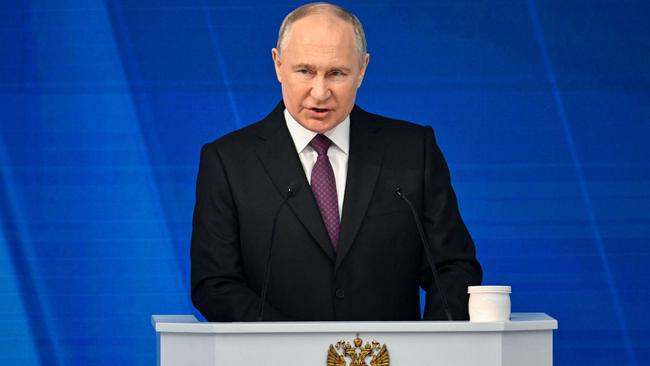‘Extraordinary’ criminal consequences in Russian Tigers Realm coal case
ASX-listed Tigers Realm Coal has warned Australians engaged in international trade could face “extraordinary” consequences as a spat over Russian sanctions deepens.

Australians engaged in international trade could face “extraordinary” criminal consequences if a court upholds the federal government view listed coal miner Tigers Realm Coal may have breached anti-Russia sanctions by continuing to operate its mines, the company argued.
Tigers Realm Coal, partly owned by Russia’s state investment body, launched legal action in June 2023 against the federal government in the wake of Foreign Minister Penny Wong’s sanctions to prevent Australian companies doing business in Russia following Vladimir Putin’s invasion of Ukraine.
The coking coal mine admitted for the first time on Monday it would be forced to cease operating if the court backs the Department of Foreign Affairs and Trade.
The company’s latest financial results reported $140m in revenue in the last calendar year, down 25 per cent on the year prior.
The company’s court challenge is based on advice from DFAT stating the transport of coal from the mine and onto a cargo vessel for sale was likely to breach Australian laws.
Barrister for Tigers Realm, Christopher Ward SC, argued there are “provisions which criminalise the provision of sanctioned services caught by this regulation”, namely sanctions imposed by Ms Wong against Russia at the outbreak of its war on Ukraine in February 2022.
This could mean an Australian citizen living in Moscow using Russian coal to heat their home may be committing an offence.
“The respondent has almost wholly failed to address the extraordinary consequences of what is being put,” Dr Ward said.
“Trying to bat away the potential criminal consequences … to Australian citizens and corporations engaged in international trade and commerce by saying these are speculative hypotheticals is no answer,” he said.
Barrister for the federal government, Perry Herzfeld SC, said the cited example was “extreme” and a “distorting example that the high court has warned repeatedly against relying on”.
Dr Ward told the court his client first anonymously contacted DFAT seeking advice about a “hypothetical” situation, and they were told mining, preparation and transportation of coal at [the company’s] Amaam project coal mine in the Chukotka region of northeastern Russia is likely to be prohibited by sanctions laws.
Further, they were told they would require an exemption from Ms Wong to avoid breaking Australian laws — designed to stop Vladimir Putin benefiting from Australian business — but instead, they launched court action.
On Monday, Dr Ward argued the court should take a narrow definition of “transport” and said the regulations did not prohibit the production of coal, just the sale of it.
“The applicant through subsidiaries operates a coal mine in a very inhospitable area of Russia and it has done so for many years. Including well before the commencement of the current difficulties involving Russia,” he said.
“A subsidiary called BPU owns and operates the mine. A further subsidiary … operates the land based infrastructure at a port. The port is an essential and integral part of the mining operation.
“The port is best described as a shallow water port and as a result barges complete the final steps in production, being the loading of the finished coal product on vessels which have nothing to do with us. [The] title to the coal passes at the rail of the vessel.”
Later, Dr Ward said: “the regulation we say seeks to prohibit the transport of Russian coal in the course of its use as an import into another country.”
Mr Herzfeld challenged Dr Ward’s argument the sanctions are designed to capture exports rather than imports.
Mr Herzfeld said Tigers Realm was attempting to introduce “fuzzy lines” into provisions which are otherwise clear.
“The transport at issue within Russia is for the purpose of exported Russian coal. Inhibiting that transport at issue tends to inhibit the trade in Russian coal. That is plainly the intention of the sanction directed at Russia,” he said.
Senior lawyer at activist group the Australian Centre for International Justice Melissa Chen said if the court finds Tigers Realm is captured by Australia’s sanctions, they could be held criminally liable for mining Russian coal since coal was made a sanctioned import good in April 2022.
“In light of this, should Tigers Realm be unsuccessful in this court case, it is vital that appropriate Australian agencies such as the Australian Federal Police take action to investigate any breaches of Australia’s sanctions laws,” she said.
“Without strong enforcement measures, the effectiveness of sanctions is diminished.”








To join the conversation, please log in. Don't have an account? Register
Join the conversation, you are commenting as Logout